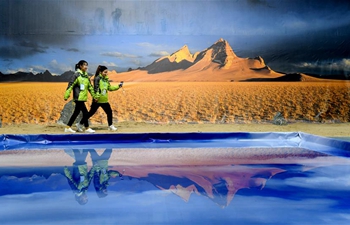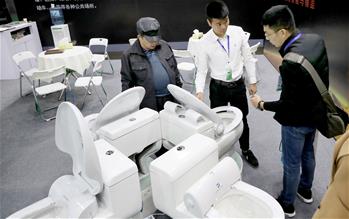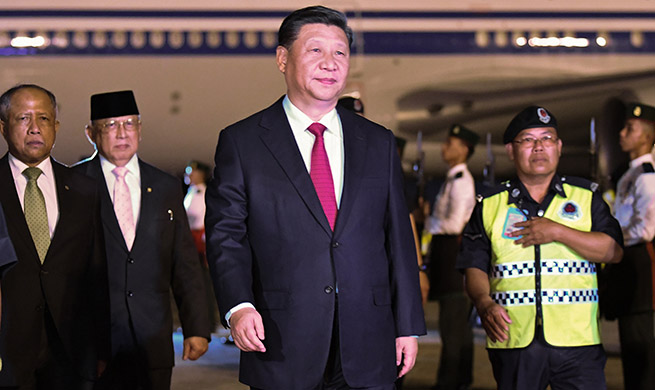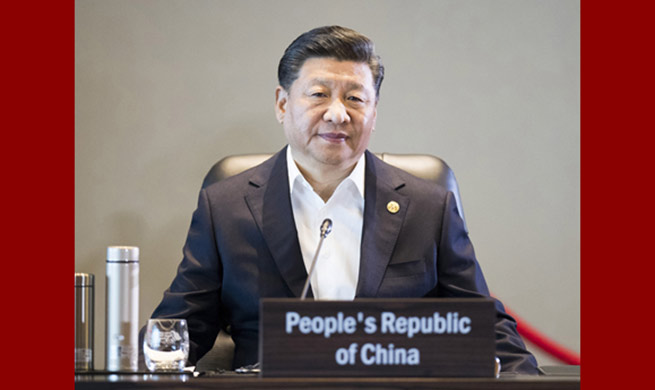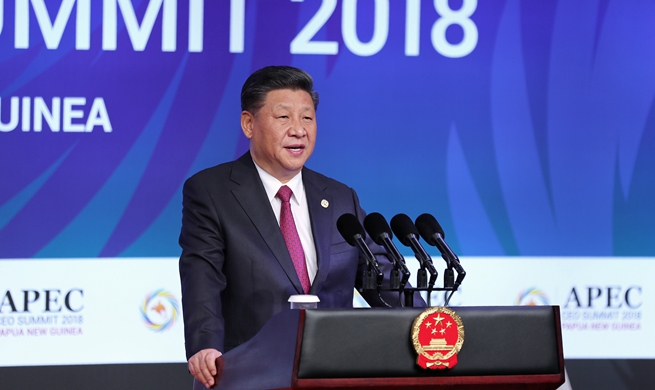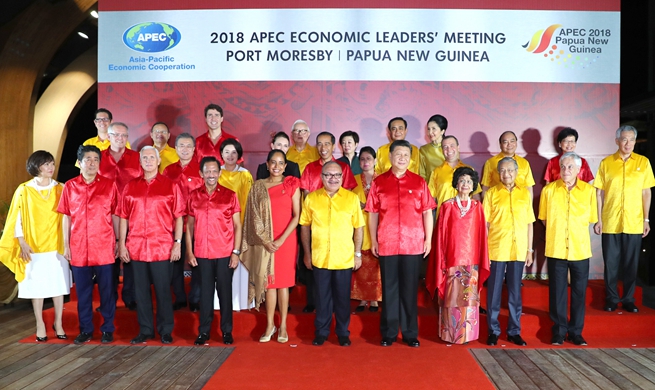HARARE, Nov. 19 (Xinhua) -- Zimbabwean President Emmerson Mnangagwa on Sunday said it was necessary for all African countries to fight corruption within their respective jurisdictions, as the recent launch of a Continental Free Trade Area had created a single African economy with a market of 1.2 billion people.
He said this soon after arriving in Harare from the 11th Extraordinary Session of the African Union (AU) Assembly in Addis Ababa, Ethiopia, which deliberated on proposed reforms to transform the organization into a highly efficient institution capable of delivering stability and economic prosperity on the continent, the Herald newspaper reported Monday.
Mnangagwa said there was urgent need to change the structures of the AU to reflect the contemporary transition from focusing on political issues to concentrating on economic development.
This prompted the Assembly, the supreme organ of the bloc, to trim the number of commissions from 10 to eight, including the chairperson and the deputy chairperson of the commission.
"The structures in the past were structured to deal with the political issues of the time, but now it's a question of the economy as well as market issues, so the following issues have been resolved: We have reduced the size of the commissions from 10 to eight.
"We have also introduced the system of rotation. In the past, there was no systematic rotation of chairpersons of the AU, but now it must rotate among the five regions (West, Central, East, North and South). And also in terms of the many commissioners, we must see that they also rotate among the regions, but of course on the basis of merit," he said.
The Southern African Development Community believes that there should be "predictable inter- and intra-regional rotation (among the regions) following the English alphabetical order.
The proposed new structure will have a chairperson, deputy and six commissioners who will superintend over the restructured portfolios of Sustainable Environment, Agriculture Rural Development and Blue Economy; Economic Development, Trade and Industry; Education, Science, Technology and Innovation; Infrastructure and Energy; Political Affairs, Peace and Security; and Health, Social Development and Humanitarian Affairs.
On Saturday, Mnangagwa told the Assembly that streamlining portfolios of the AU Commission, the Union's secretariat, through focused units would help "remove overlaps and duplication in portfolios".
The current amorphous structure is viewed as complex as it has eight commission directorates, 31 departments and offices, along with 11 AU organs, 31 specialized technical agencies and 20 high-level committees.



